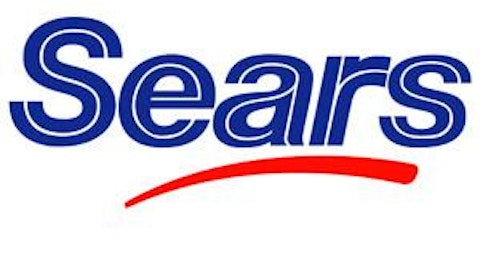Chico’s FAS, Inc. (NYSE:CHS) has fallen out of investor favor recently, with the stock depreciating 15% over the past year. This may be an indication of a weakening brand.
Recent results and company strategy
In the second quarter, net sales increased 1.2% to $649.5 million year over year, but the improvement was mostly due to the opening of 112 net new stores. If you want the real story, look at comps, which declined 2.6% versus a 5.6% increase in the year-ago quarter. Chico’s FAS, Inc. (NYSE:CHS) attributes the poor comps performance to weak traffic, lower volume, and declining average dollar sales.
Chico’s and Soma Intimates represent 63.8% of sales, and they saw a 3.1% decline in comps versus a 7.2% increase in the year-ago quarter. White House/Black Market represents 31.6% of sales, and its comps dropped 1.5% versus comps growth of 2.3% in the year-ago quarter.
Many retailers are seeing declining comps, but some are still capable of improving their bottom lines by cutting costs. Unfortunately, Chico’s FAS, Inc. (NYSE:CHS) doesn’t fit into that category. Diluted earnings-per-share plummeted 15.6% to $0.27 year-over-year. Lower traffic has led to more promotional activity, which affected margins and EPS.
In order to inject some life into the company, Chico’s FAS, Inc. (NYSE:CHS) aims to enhance its omni-channel capabilities, expand into Canada, and open more Boston Proper (currently 4.6% of sales) stores. While the company will put some available capital toward share buybacks and dividends, they won’t be its priorities. Chico’s will first use its available capital for organic growth, including expansion into new markets, relocations and remodeling, IT, and central support facilities.
The word “expansion” keeps coming up. Chico’s FAS, Inc. (NYSE:CHS) plans on an 8% increase in store openings in 2013 — 20 Chico’s, 55 White House/Black Market, 40 Soma Intimates, and four Boston Proper stores.
Chico’s has goals of earnings-per-share growth in the mid-teens and sales growth in the low double-digits.
Chico’s vs. peers
Chico’s apparel hasn’t been in high demand as of late, which could be due to poor marketing, or simply a weak consumer.
Macy’s, Inc. (NYSE:M) has also recently warned of a weak consumer. Like Chico’s, it plans on implementing strategies to help fuel growth. One such strategy is to focus more on millennials by offering more activewear brands, such as Nike, Under Armour, and The North Face.
Then there’s Nordstrom, Inc. (NYSE:JWN), which offers a comfortable luxury shopping experience. While Nordstrom, Inc. (NYSE:JWN)’s stock is down 2.08% over the past month, that’s still better than Chico’s and Macy’s, Inc. (NYSE:M), which have depreciated 2.42% and 9.14%, respectively. One of Nordstrom, Inc. (NYSE:JWN)’s most impressive stats is its $400 in sales per square foot. However, let’s see how it stacks up to Chico’s and Macy’s, Inc. (NYSE:M) on a fundamental basis.
| Forward P/E | Net Margin | ROE | Dividend Yield | Debt-to-Equity Ratio | Short Position | |
|---|---|---|---|---|---|---|
| Chico’s | 13 | 6.44% | 15.44% | 1.40% | 0.00 | 3.80% |
| Macy’s | 10 | 4.93% | 23.35% | 2.20% | 1.18 | 3.00% |
| Nordstrom | 14 | 6.09% | 39.26% | 2.10% | 1.54 | 2.70% |
All three stocks are trading at fair valuations, but Chico’s stands out in two areas. One, it offers the highest net margin of 6.44%, but not by much. Two, it’s the only company of the three that sports a debt-to-equity ratio lower than the industry average of 0.5. That said, none of these debt-to-equity ratios are overly concerning. Nordstrom, Inc. (NYSE:JWN) turns the most investor dollars into profit as its return-on-equity shows, it has the fewest people betting against it (always a good sign), and it yields 2.10%. Nordstrom’s has also been the most impressive for top-line revenue growth as of late:
CHS Revenue TTM data by YCharts
The same can be said for diluted EPS growth:
CHS EPS Diluted TTM data by YCharts
The Foolish Bottom Line
Chico’s is likely to get back on its feet at some point in the future, thanks to strong management and a history of bouncing back from difficult times. However, considering comps declines and the need for increased promotions due to a cautious and value-based consumer, this doesn’t seem to be the best time to initiate a position.






